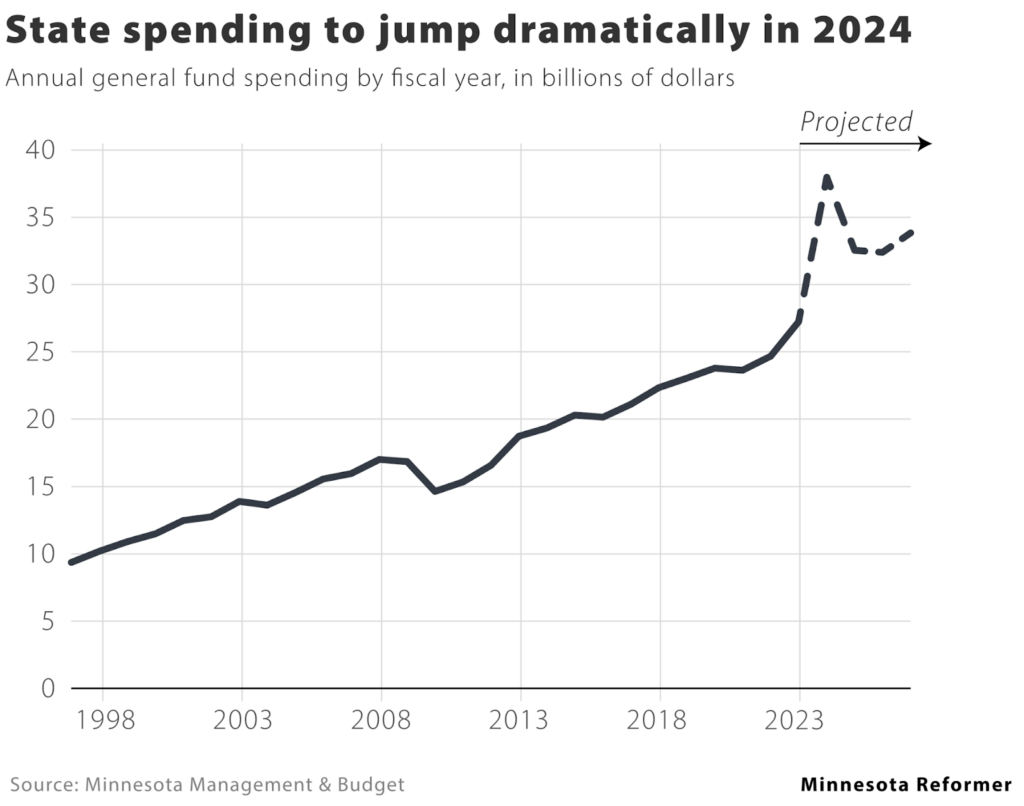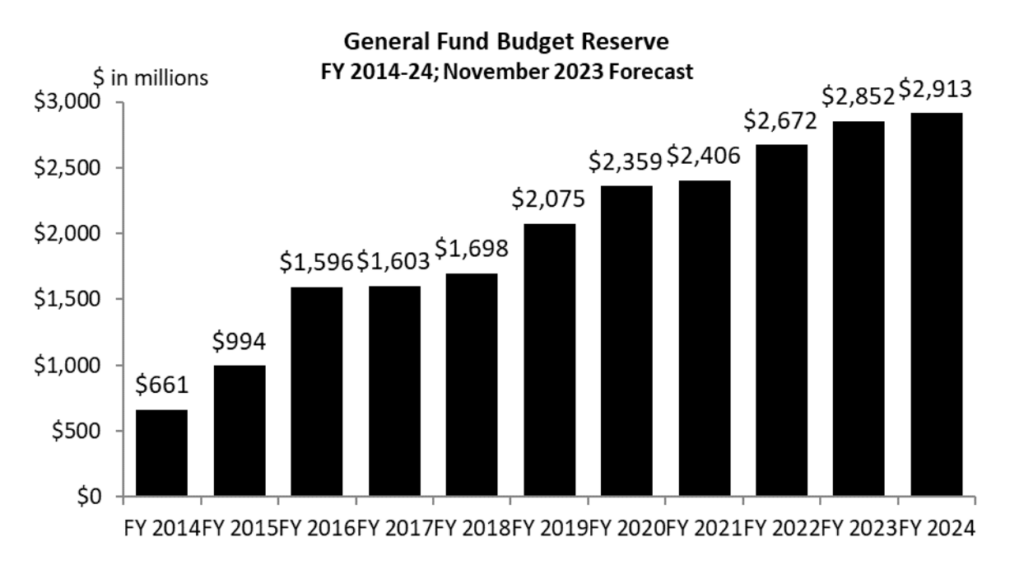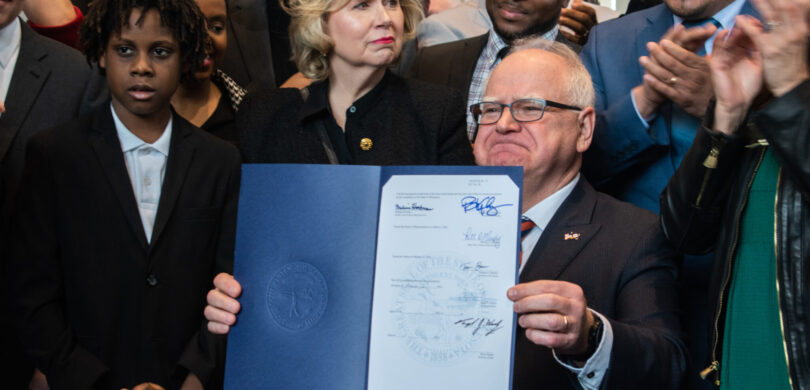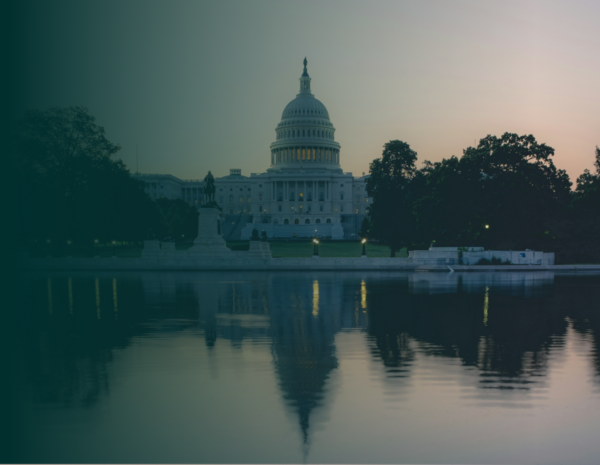The recent ascension of Tim Walz’s national political profile — from a popular, but nationally obscure midwest Governor to a Vice Presidential candidate — has many rushing to answer questions about his biography, positions, and experience. His policy positions will be just one of many factors that determine how he’s received — as well as the Democratic ticket overall. Nevertheless, our obsession with policymaking here at Plural made us eager to assess the VP pick based on his legislative history.
Governor Walz’s Electoral History
First, let’s quickly review the Governor’s path to this point in his career as a lawmaker. Following more than twenty years of service in the Army National Guard and nearly two decades as an educator, Tim Walz was elected to represent Minnesota District 1 in the U.S. House of Representatives in 2006. Walz won election to that seat five more times, serving from 2007 through 2018.
In 2018 Walz was elected Governor of Minnesota. He was later re-elected in 2022. He’s been governor through three two-year legislative sessions, plus several special sessions. Policymaking in Minnesota throughout this time has been largely defined by:
- The response to protests following the murder of George Floyd by a Minneapolis Police Officer
- The response to the COVID-19 pandemic
- The passage of many progressive “bucket list” items, including cannabis legalization and codified abortion rights
Walz’s Notable Policy Positions as U.S. Representative (2007-2018)
Walz’s career in Congress spanned three presidencies. It included an early stint in the majority (2007-2011) followed by an extended time in the minority (2011-2018). Of course, it’s impossible to capture the full scope of all that Tim Walz acted on in that time. However, we’ve summarized his actions on some of the most notable policy decisions during his tenure in the House below.
The Affordable Care Act
Walz joined most House Democrats in voting for the Patient Protection and Affordable Care Act (H.R. 3590), the landmark healthcare legislation known as Obamacare.
Foreign Wars & Military Spending
In 2007, Tim Walz voted for H.R. 1591 (later vetoed) and its successor H.R. 2206 (now law) to continue to fund the war in Iraq, amongst other provisions. However, Walz also supported a parallel effort to require a withdrawal from Iraq on a tight timeline. This effort eventually failed.
In 2016, Walz voted for a failed amendment to repeal the Authorization for Use of Military Force of 2001. Overall, Walz was fairly consistent with his support of military funding throughout his tenure in Congress.
Same-Sex Marriage
Walz supported and co-sponsored iterations of the Respect for Marriage Act that were introduced during his time in the House. The legislation sought to repeal the Defense of Marriage Act which barred federal recognition of same-sex marriages. It officially became law in 2022. These efforts were generally seen as a litmus test on support for same-sex marriage before Obegefell established the fundamental right in 2015.
Gun Control
Gun rights is an area where Walz’s positions have changed throughout his political career. Walz has generally moved left on gun rights — perhaps best exemplified by his vote against right-to-carry reciprocity legislation in 2017. Walz had co-sponsored similar legislation in 2011.
Abortion Rights
Walz consistently opposed Republican-led efforts to establish federal restrictions on abortion rights. He voted against H.R.36, the Pain-Capable Unborn Child Protection Act, which passed the House in 2017.
Tax Cuts and Jobs Act
Walz joined the majority of Democrats in opposing President Trump’s signature tax reduction package passed in 2017.
Major Policy Positions as Governor
As Governors don’t vote on legislation, their positions are best gathered from public statements and decisions to sign or veto legislation that reaches their desks. Below we review Walz’s actions on some of the highest-profile policy debates in Minnesota over the past six years.
Marijuana Legalization
Walz supported and signed HF 100 in 2023, which legalized adult use of marijuana in Minnesota.
Abortion Rights
Governor Walz and Minnesota Democrats have expanded and codified abortion protections in Minnesota. Beyond enshrining fundamental abortion rights, they also passed legislation protecting Minnesota-based medical professionals and patients from legal action in states that restrict abortion rights.
Labor Rights
The Governor has been largely supportive of labor rights throughout his tenure. In return, unions reciprocated the support. Notable wins for labor during the Walz administration have included:
- A paid sick leave law expanding access to the benefit.
- Establishment of a state-supported Paid Family and Medical Leave program in Minnesota.
- The banning of noncompete agreements and “captive audience” meetings.

Public Spending
State spending has grown significantly during Walz’s time as Minnesota governor. But this wasn’t uncommon among similar states during this period. State budgeting is complex — but the increases are, at least in part, driven by greater state investment, inflation, and the response to the COVID-19 pandemic.
State spending has grown significantly during Walz’s time as Minnesota governor. But this wasn’t uncommon among similar states during this period. State budgeting is complex — but the increases are, at least in part, driven by greater state investment, inflation, and the response to the COVID-19 pandemic.
It is also worth noting that the state’s General Fund reserve has grown during the same period. Increased expenditures may have, at least in part, been covered by increased revenue. See the image below to learn more.
Working With the Legislature
Astonishingly, Governor Walz has issued just one veto in his six years as Governor. Throughout the past 30 years of Minnesota’s legislative history, there hasn’t been a single year (before Walz) that had fewer than two vetoes. Walz has been veto-free for five of the six years he’s been in office. This may signal a strength in dealmaking, a deference to the legislature, or a strong influence on what gets to his desk — regardless, it’s certainly notable.
The single bill that Governor Walz vetoed was HF 2369 in 2023. The bill would raise pay and labor conditions for rideshare drivers in Minnesota. Walz’s veto rankled progressives. It also prolonged a fight over rideshare companies’ activity in the state. The city of Minneapolis successfully passed a similar ordinance on its own. Still, rideshare companies threatened to end their business in the state. In 2024, Walz and legislative leaders brokered a deal that kept rideshare companies in the state while offering drivers less generous increases in pay and labor standards.

Characterizing Tim Walz’s Public Policy Positions
Governor Tim Walz has spent nearly twenty years in public office, both as a member of Congress and Governor of Minnesota. Despite this tenure, it’s clear that political pundits don’t immediately know how to characterize Walz’s policy stances as a whole. He’s been described as both a moderate and a progressive, and his policy record indicates signs of both.
In many ways, it seems obvious that a politician with such an extensive career cannot be neatly categorized. However, both parties will certainly look to define Walz’s policy track record in the coming weeks and months.
Get Started With Plural
Top public policy teams use Plural to monitor the activity of key legislators across the United States. Interested in getting started? Create a free account or book a demo today!
More Resources for Public Policy Teams
Key Benefits of AI for Lobbying & Advocacy
Want to be able to explain the benefits of artificial intelligence for lobbying and advocacy? Everyone is talking about AI. And we get it, it’s not simple to understand. But as an AI-powered organization, Plural is here to help you get the most out of advancements in AI to make your job as a policy […]
2025 Legislative Committee Deadlines Calendar
Staying on top of key deadlines is manageable in one state, but if you’re tracking bills across multiple states, or nationwide, it quickly becomes overwhelming. That’s why we created the 2025 Legislative Committee Deadlines Calendar. Stay ahead of important dates and download our calendar today. Get started with Plural. Plural helps top public policy teams get […]
End of Session Report: Florida 2024 Legislative Session
The 2024 Florida legislative session saw significant activity in the realm of insurance and financial services, reflecting key themes of consumer protection, market stability, and regulatory modernization.





